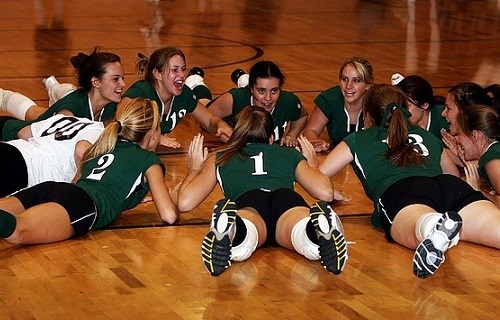Volunteerism and companionship are most important in European sports clubs
Results from a recently published report comparing sports clubs across Europe show that European sports clubs are so similar in some areas that it almost looks like a ‘European sports model’ exists.
Sports clubs are commonly based on voluntary work and on a varying public subsidy. In general, conviviality and friendship outweigh sporting competition, in terms of what the clubs perceive as most important, although sporting competition is also important. Only in one out of the ten participating countries – Hungary – do clubs perceive sporting results to be more important than social life.
The report is the second to come from the large EU-supported research project called ‘Social Inclusion and Volunteering in Sports Clubs in Europe’ (SIVSCE). The report will be followed by additional reports in the coming months, one of which will focus on the experiences of members and volunteers in European sports clubs.
Largest study on sports clubs ever
In total, 35,790 sports clubs from Belgium, Denmark, England, Germany, Hungary, the Netherlands, Norway, Poland, Spain and Switzerland have participated in the research – which makes it the largest study on sports clubs in Europe ever.
The four main topics in the report are: structure, management, voluntary work and social integration.
More than half of the European sports clubs are small i.e. less than 100 members. Only one in ten clubs have more than 500 members. Two thirds of the clubs primarily offer one sport. Some clubs are relatively old, but one third are established after the millennium. The proportion of new clubs is especially high in former authoritarian regimes (Spain, Poland and Hungary).
Denmark, Germany, the Netherlands and Switzerland are in the top when it comes to member participation. In these countries, an average of 25 percent of the adult population are members of a sports club.
Difference in inclusion of special groups
In general, elderly people are represented in seven out of ten sports clubs, and Denmark has the highest number of sports clubs where the elderly represent more than half of the club members.
Meanwhile, Denmark, England and Belgium have the least focus on including children and adolescents through ‘special initiatives’, which is most common in Hungary, Poland and Germany.
Norway, Germany and England lead the way regarding inclusion of disabled people. In these countries, disabled people make up 1-10 percent of the club members in 6 out of 10 clubs. In Germany and the Netherlands, sports clubs are good at including people with disabilities as well as people with different ethnic backgrounds, the report says.
Membership democracy
In Spain, 47 percent of sports clubs say they “totally agree”, when asked if they involve members in important decisions, while only 18 percent of the sports clubs in Denmark and Poland had the same answer to that question.
When merging the answers “totally agree” and “agree”, 89 percent of Dutch sports clubs indicate that they aim to involve members in important decisions, while Denmark and Belgium scrape the bottom of the barrel with 67 and 66 percent.
The report points to two main challenges. In Denmark, Germany and Norway, the clubs are struggling to recruit more volunteers and new members, while the biggest challenges in Poland, Hungary and Spain are the availability of sports facilities and the clubs’ economy.
On 28 September this year, the SIVSCE-project hosted a conference in Brussels about ‘Social inclusion and volunteering in sports clubs in Europe”. To view presentations from the conference, visit the SIVSCE website.
More information
Read a press release about the report:
Characteristics of European sports clubs
Read more about the SIVSCE project
Read about an earlier publication from the project:






